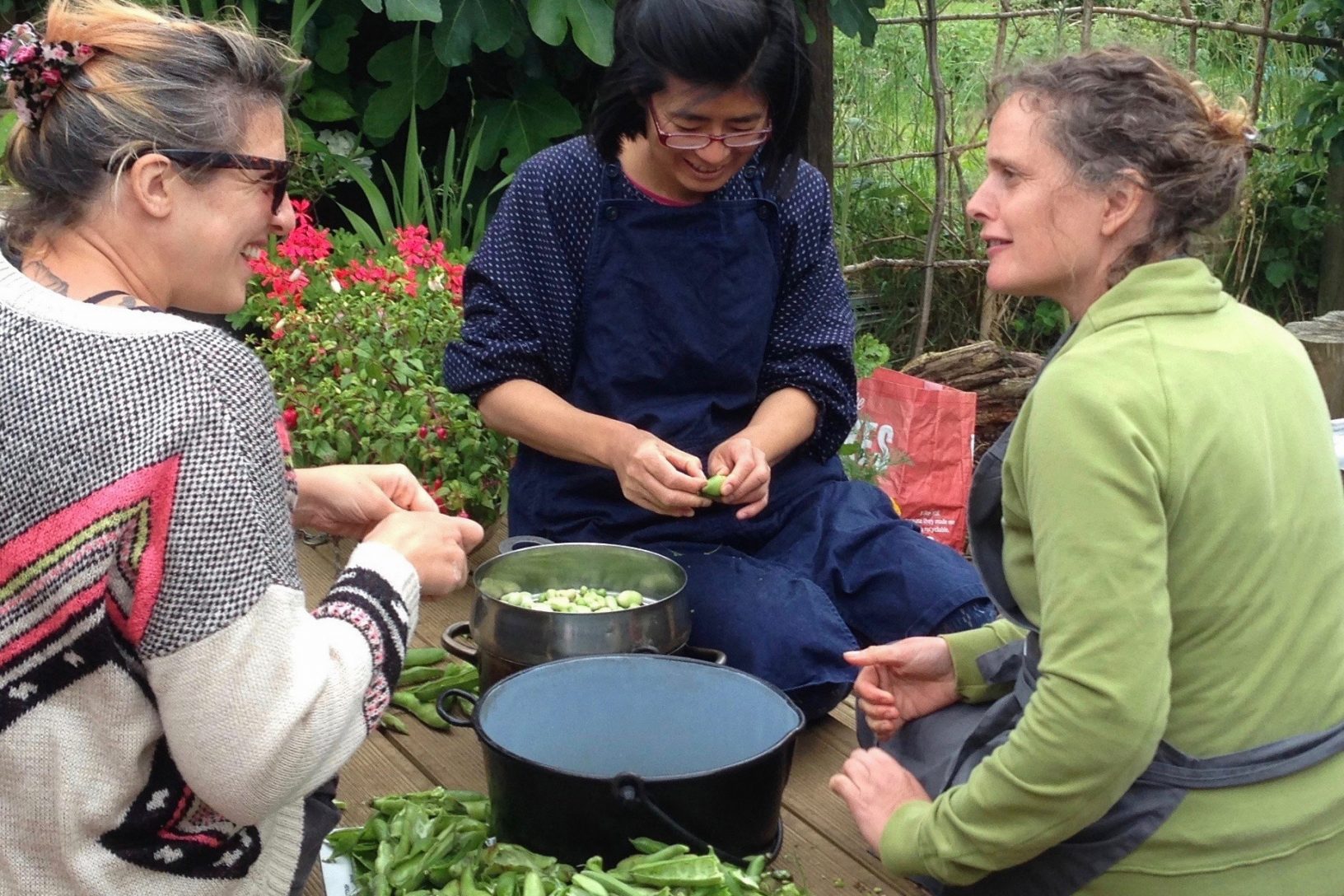
Plot 22 in Brighton is a community gardening project with therapeutic intentions that consists of just two regular size allotments.
Yet last year it hosted more than 350 people and that number is growing, reflecting that it caters for a wide range of health needs, is benefiting from social prescribing and is incredibly well supported by the community.
The pandemic brought about inevitable change. Quickly there was a realisation that not only would things have to change operationally but there was a whole tranche of people whose needs were not going to be met by Zoom gatherings.

Funding from the Coronavirus Community Support Fund has enabled therapeutic gardening offerings to be adapted and expanded. Instead of groups meeting monthly, they became smaller and met weekly, with 10 sessions a week running morning, afternoon and at weekends.
Founder Emma Houldsworth said: ‘Because we are a small site, the former funding imperative of working with the maximum numbers for minimum funding, has always been a tricky factor for us. But now that we have to restrict numbers in order to maintain covid safe working we find working with smaller groups for shorter periods has been a way to build up relationships and is less stressful for facilitators, still sociable and practical, still providing the opportunity to come regularly.’
Feedback from those attending illustrates the high esteem Plot 22 is held in. The daughter of an attendee living with dementia wrote: “The sessions are much appreciated as they are the only social group that’s running, so well done for considering the many other implications of lockdown.
‘Outside, words, plants, friends, affection, music, food and colour are all very important things, and you seem to have that covered.’

One key factor in why Plot 22 has been so valued during the pandemic is its central location and accessibility.
Emma said: ‘A lot of people during lockdown were afraid to go to the seafront because it was so busy and so were the parks. People who were a little bit older or had underlying conditions just found being able to come to the plot, where visits were managed, was a relief and they felt calm.
‘When you are there you feel you’ve stepped out of the hubbub into a different world and I think that’s a tonic for people.’
Mental health is a priority focus for Plot 22 and it has built up useful links with a hospital providing care in adult mental health and dementia.
Nick McMaster, from the Inpatient OT team at Sussex Partnership NHS Foundation Trust, said: ‘The benefit of accessing a project such as Plot 22 is that it provides links to the community and activity outside of a mental health setting, naturally promoting social inclusion and reducing stigma. On our sessions so far, I have observed our service users increase in mood, social interaction and reduction in mental distress.’

Plot 22 has also successfully tapped into social prescribing. Emma cites two factors for this success. One is being part of the Green Wellbeing Alliance where STH (Social and Therapeutic Horticulture) organisations across Sussex can promote what they do, share good practice and cross refer clients.
The other factor is good old-fashioned networking with social prescribing link workers, local authorities and community partners running projects to support the marginalised and disadvantaged.
While Facebook and social media can potentially reach a significant audience, their weakness is their ability to connect with people who find getting support hard.
‘We work very deliberately with community partners such as those already working with people with dementia or vulnerable women or local children's centres working with struggling families. We try and make sure they are able to tell people about us and maybe even bring them along for the first time.
‘What we realised over time is those relationships do take time to build and that landscape is always changing so you always have to redo it, but the dots are getting joined up faster.’

As well as providing distinct offerings for those with dementia and mental ill health, vulnerable women and young families, Plot 22 has created connections with the general community.
Half-term nature-based activities attracted 35 new families and ended up being over-subscribed but illustrate what Emma describes as the project’s desire for the community to ‘feel a sense of custodianship and have a relationship with piece of land’.
Many others are looking for this connection if a seven-year waiting list for allotments in Brighton and Hove is anything to go by. ‘At this time when a lot of people’s employment is insecure and a lot of people’s anxiety is through the roof, I’d love to see more land available in this way,’ says Emma.
Plot 22 was 10 years old in 2020 and although Covid curtailed celebrations, it has not derailed Emma’s optimism: ‘I do feel more positive now than I have done. We are on a much more solid footing, there is so much recognition now of the benefits of spending time outdoors.
‘That’s reflected in the support we’re receiving to work with people and to do so more regularly. It feels a bit like we have changed gear. Hopefully, we will go from strength to strength.’
* This article reflects Plot 22 before the current lockdown came into effect.